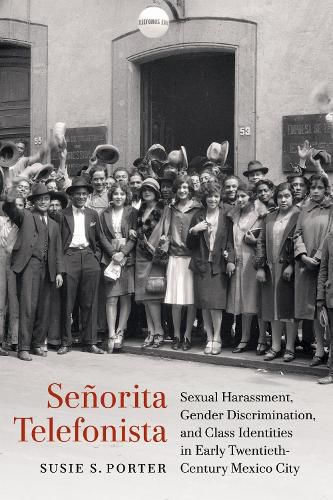Readings Newsletter
Become a Readings Member to make your shopping experience even easier.
Sign in or sign up for free!
You’re not far away from qualifying for FREE standard shipping within Australia
You’ve qualified for FREE standard shipping within Australia
The cart is loading…






In Senorita Telefonista Susie S. Porter recounts the dynamic role of telephone operators in labor organizing in early twentieth-century Mexico City, taking us from switchboards to union halls and into the streets as working women fought for better wages and against sexual discrimination and harassment. The telephone operators' struggles reveal how bodily autonomy is historically contingent and constructed through the lived experiences of class. When and where were working-class identities available to women who wanted to make demands as workers? How did middle-class conceptions of respectability, sexual and otherwise, limit the space for working women to speak against male authority and to denounce assaults on their bodily autonomy? Porter charts the shifts in the ways women could (or could not) speak out against discrimination related to gender, marital status, and pregnancy.
Senorita Telefonista examines the emergence of the idea that women were maladapted to the workplace and charts Mexican women's fight to claim their rights as workers. As languages of class circulated and identities were made and unmade--by management, organized labor, working men, and working women themselves--women's support for organized labor hung in the balance.
$9.00 standard shipping within Australia
FREE standard shipping within Australia for orders over $100.00
Express & International shipping calculated at checkout
Stock availability can be subject to change without notice. We recommend calling the shop or contacting our online team to check availability of low stock items. Please see our Shopping Online page for more details.
In Senorita Telefonista Susie S. Porter recounts the dynamic role of telephone operators in labor organizing in early twentieth-century Mexico City, taking us from switchboards to union halls and into the streets as working women fought for better wages and against sexual discrimination and harassment. The telephone operators' struggles reveal how bodily autonomy is historically contingent and constructed through the lived experiences of class. When and where were working-class identities available to women who wanted to make demands as workers? How did middle-class conceptions of respectability, sexual and otherwise, limit the space for working women to speak against male authority and to denounce assaults on their bodily autonomy? Porter charts the shifts in the ways women could (or could not) speak out against discrimination related to gender, marital status, and pregnancy.
Senorita Telefonista examines the emergence of the idea that women were maladapted to the workplace and charts Mexican women's fight to claim their rights as workers. As languages of class circulated and identities were made and unmade--by management, organized labor, working men, and working women themselves--women's support for organized labor hung in the balance.